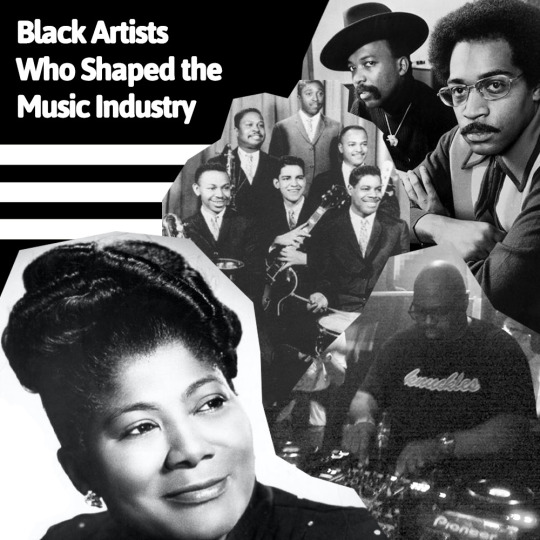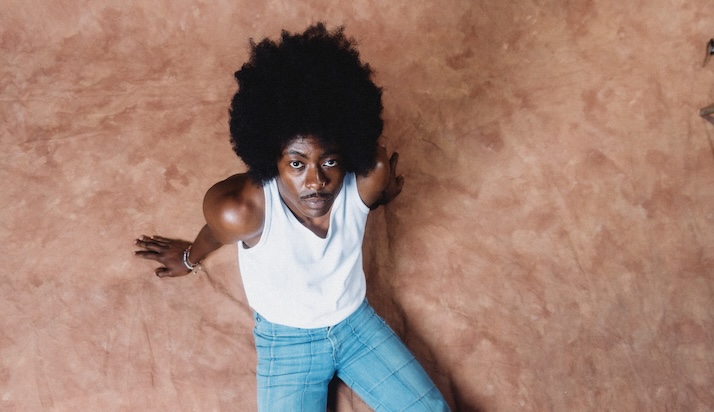The Invisible Hands That Changed Pop Music Forever

A painting is a collaboration of three things: the canvas, the creators, and the acrylics. If the music industry is a painting, then Black musicians are all three. In honor of Black History Month, we are exploring the legacy of black ingenuity through the decades, highlighting four music pioneers: Mahalia Jackson, The Funk Brothers, Gamble and Huff, and Frankie Knuckles.
Everyone knows or has at least heard of The Beatles. By sewing in elements of rock and roll into their own brand of pop, the Liverpool quartet helped bridge the gap between '50s clean cut, highly manufactured pop and what we know as pop music, today. The band pioneered the British Invasion and its widespread dissemination, forever changing pop music. But there was another group with an equally massive impact on the music we listen to today, except, chances are, you’ve probably never heard of them.
Alongside the British Invasion was another mass musical movement that would forever impact the future of pop and the music industry: Motown. The movement was sparked by Berry Gordy Jr. who, with the encouragement of Smokey Robinson, created Motown Records - the label that crafted adored artists like Marvin Gaye and The Temptations. While these musicians were extremely talented, the music they performed would not have existed without a group of adept virtuosos known as The Funk Brothers.
These 13 session musicians are collectively responsible for pioneering the sonic revolution of Motown. They played on more number one hits than The Beatles, Elvis Presley, The Rolling Stones and The Beach Boys, combined. They blended gospel, soul, and jazz with swing and pop to create catchy hooks and musical pockets that would forever change pop and eventually influence hip-hop and contemporary R&B.
1959 in Detroit is where it all began. By that point, the city had long been a musical epicenter, especially for jazz and blues, drawing in multiple talents throughout the 1930s and 40s, from Duke Ellington to Ella Fitzgerald. Upon creating Motown, Gordy recruited many of The Funk Brothers from different music clubs throughout Detroit.
Because they long remained in the shadows, it is important to acknowledge each of the Funk Brothers. These 13 pioneers are made up of Benny Benjamin (drums), Eddie "Bongo" Brown (bongos), Joe Hunter, (keys and first band director), James Jamerson (bass), Uriel Jones (Drums), Joe Messina (guitar), Earl Van Dyke (keys), Robert White (guitar), Eddie Willis (guitar), Richard "Pistol" Allen (drums), Jack Ashford, (percussion), Bob Babbitt (bass after Jamerson), and Johnny Griffith (keys).
These brothers were bound not by blood but by soul. And that is evident in the records they crafted together, fusing latin and afro-rhythmic beats with jazz and R&B to invent new, rich grooves with a punching yet melodic bass line, a four-beat drum pattern and clever drum fills that, alone, brilliantly set the scene. By 1972, Motown had released over 100 No. 1 R&B singles and 50 No. 1 Pop songs in the U.S, each of which involved some combination of The 13 Funk Brothers. As guitarist Joe Messina puts it, "I think the magic was, we listened to each other and we liked each other."
Though there were R&B pioneers throughout 1940s and 50s, like Jackie Wilson, who paved the way for the Motown wave, the brothers certainly blazed the trails. Their contributions to American R&B spread to the British Invasion, as The Beatles, Rolling Stones, and Led Zeppelin covered Motown songs and no doubt let its influence bleed into their own music. The Beatles, for example, covered The Miracles' "You've Really Got A Hold On Me" and the Rolling Stones covered The Temptations' "Ain't Too Proud to Beg," among others.
As the Motown Museum puts it, Motown married "the call-and-response patterns of black gospel music with the syncopation and improvisation of the bebop movement in jazz. Down in the so-called snake pit in Studio A, The Funk Brothers backed Motown's finest artists at all hours of the day - and night." Jack Ashford, who was in charge of vibes and tambourine for The Funk Brothers says in reference to Studio A, "I'd get this feeling, I could just touch it. It never left that room."
The Funk Brothers were trailblazers both in and out of the studio. The weight of their musical impact afforded them the power to influence more than just music. Motown was more than a record label. It was a movement that, along with other labels like Stax Records, ultimately helped dismantle racial barriers and desegregate the music industry.
If this article is the first you are hearing of the Funk Brothers, you're not alone. Not many people really knew about The Funk Brothers until 2002, when the award-winning documentary "Standing in the Shadows of Motown" detailed their experiences and industry-shaping impact.
Without The Funk Brothers, Motown arranger, writer, and producer Paul Rise says, "there really wouldn't be a Motown." As Otis Williams from The Temptations explains, "They were the groundwork, they were the thing that everything else was built on." Producer and drummer Steve Jordan claims that anyone could have sang on those Motown songs and "it would've been a hit because the track was just so incredible, [the Funk Brothers] were musical entities on to themselves."
In 1988, Berry Gordy sold Motown Records. Nonetheless, the Motown flame remained bright, particularly in the late '80s and early '90s, during which the sampling of Motown songs laid the foundation for countless talents like Run DMC, Notorious B.I.G., and Mary J Blige, who looked to the spirit of The Funk Brothers to shape the heart of hip-hop and R&B.



